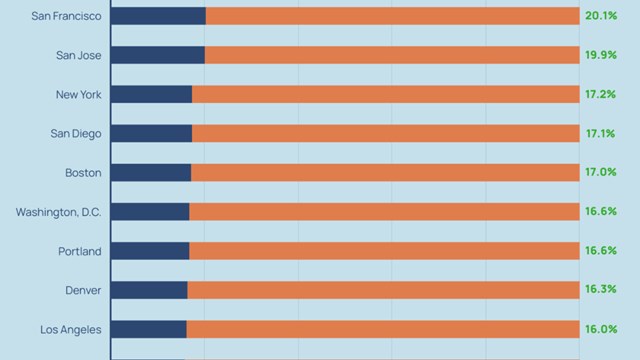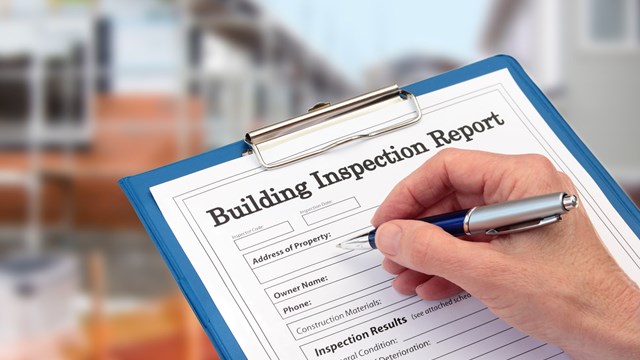Unexpected repairs are part of owning a home. For owners of single-family houses, the process is simple: Something needs fixing or replacing, and you call a contractor and get the work done. You may not be happy about it, but you accept it as a simple necessity—part and parcel of being a homeowner.
Like any other home or building, condo and co-op developments need to deal with unexpected repairs, as well as large-scale projects that come up from time to time. So owners and shareholders should understand that extra revenue is going to be needed once in a while, right?
Sounds nice, but as any board or management team can tell you, it doesn't always work that way. When a need for a special assessment comes up, residents can be resistant.
"Everyone can budget for a monthly maintenance fee because they know exactly what it is," says Mary Ann Hallenborg of Hein Associates PA in Cherry Hill. "A special assessment is a bit of a wild card because A, you don't know how much they're going to be and B, you don't know if it?s going to be imposed on you in one lump sum or installment-payment fashion."
So it's important to prepare shareholders for the need of special assessments, and run the process with as little conflict as possible.
Why Special Assessments?
Special assessments come up when capital is needed, such as to make an unforeseen repair not normally budgeted for, or to pay for extra snowplowing during a heavy winter.
"If it's for a high-rise building in northern New Jersey, it might be to install new windows," says Hallenborg. "Or it might be to replace the roof."Special assessments are not used to replace an individual sink or carpet—individual shareholders are responsible for those—but a roof or exterior wall would fall under the category.
According to Abe Kleiman, managing partner with Kleiman & Weinshank LLP, an accounting firm in New York City, "In many cases, you need the money so quickly that just raising the common charges won't cover your capital requirements. What I stress to my boards, both co-op and condo, is that the assessments be properly designated. If it's for operating expenses, state that it's for operating expenses. If it's for capital improvements, replacements of components of the building, it ought to state that. A capital assessment gets a different treatment from an operating assessment from a tax perspective. As a general rule, improvements would increase the value of a property, but it's not necessarily so—an assessment may not necessarily raise the value of your apartment, but it's a method of raising capital to do whatever improvements are needed in the building. As a general rule, a building that's better maintained has a greater value."
But, says Hallenborg, "It doesn't necessarily have to be a building-wide major capital improvement, it can be repairs as well. But it has to be something that falls under the common expense category; something that benefits everyone."
"Special assessments are to pay for projects that are outside the scope of either a normal operating budget and/or an allocation that has been set aside in replacement reserve funds which take place when you're short of such resources," says Edward S. Frank of Arthur Edwards, Inc. in River Dale.
One way or another, these repairs need to be done and it essentially comes down to a choice between increased maintenance fees and a special assessment. Many unit owners see it as choosing between the lesser of two evils, but good communication and planning can lessen the blow of either course of action.
Thinking Ahead
Long-range planning can keep reserve funds healthy and help avoid most special assessments. "We've been successful at convincing our clients to include a line item in their operating budget," Frank says. "You can use an operating contingency, which is a small percentage of the annual budget that is used for unexpected issues for operating purposes."
Another option is a reserve for a specific purpose. Frank says snow removal reserves are a common option.
"In addition to the budget line item of say $10,000, we suggest including additional money—say $5,000—and we separate those funds. We create a separate bank account for snow plowing reserves and [let it] accumulate until it's needed. So if you had a mild winter and didn't spend anything, the money stays there. If the next year is also mild, the money still stays there, and you have $10,000. The third year comes along and you get a major storm that drops 30 inches of snow. That storm alone will cost you $10,000, but you've planned for it."
There are potential downsides to this. If, say, there isn't any heavy snow for two or three years, boards may start to think they've got plenty of money saved and stop adding to the reserve fund. Frank says he suggests reducing the yearly budget slightly, as opposed to not building up a reserve.
And while the long-range benefits of a reserve fund are clear, it's not always easy to convince owners that not reducing payments towards funds (or even maintenance fees) is a good idea when there's a surplus.
"Obviously it's best to develop and maintain a reserve fund for rainy days," Hallenborg says. "But that often means raising monthly charges in order to have that surplus and that's an unpopular decision if you're a board, it's like raising taxes."
Lines of Communication
When special assessments do happen, shareholders are more likely to accept it if they've been kept up to date on developments as they happen.
"There is, of course, a financial report that comes out once a year," Hallenborg says. "But in the event that there is a small reserve fund, or in the event that the board is looking at either a shortfall or a future improvement project that is on the horizon, the advice I give is 'disclose, disclose, disclose.'"
"Constant communication from the very beginning to the very end is key," says Frank. "Letting association members and residents know what their financial picture is—not just by presenting copies of the audit, but by having the accountant come to a meeting and explain to the membership what their financial position is. Let the budget process be a true and accurate picture of what the budget should be for each year. Make sure that your reserve studies are properly updated on a routine basis. Take all of those components and educate the membership by saying, 'These are the things we need to do to be sure we are a financially sound association.'"
Kleiman says, "Communication is probably the best method of keeping people informed—obviously, everyone resists paying additional money, but if you've communicated the need for the assessment, and people understand what it's being used for and why it's needed, that's half your battle. When I go to shareholder and association member meetings, that's the biggest gripe that shareholders and unit owners have; that board members and management aren't communicating with them."
Frank recalls a situation where his company took over a 40-unit association. A reserve study was ordered, and it showed the association was seriously under-funded, from a cash-balance stance as well as contributions. "They recognized the need to increase revenue by raising maintenance fees. They weren't happy, but they knew it had to be done, and they got over it," he says. "Nine years later, that association is fully funded and then some in regards to their reserves. They have a regimented plan where they can say, 'Decks are looking shoddy? We have the money, let's replace them.' It runs like clockwork and the community is not only financially stable, but the resale values are superior to any other association in its area."
But it's not always easy to keep people informed. Some people just want to get home from work, spend time with their families, relax and not get involved with what their board is doing—until the bill comes around anyway.
"Newsletters are a great idea, just to keep people apprised of what's going on," Hallenborg says. "It's a good place to give people a heads-up that a special assessment might be required at some point in the future, and that your board will do everything to minimize it. If people have some idea of what's coming, they're better prepared to put money aside for it."
Protecting the Board
Boards can't just impose special assessments randomly. An association's bylaws will determine how they need to be levied. Hallenborg says that in some cases, a vote of all shareholders may be required before an assessment can be made: "[That's] a little unusual, but it does happen," she says.
You want to make sure that all board members are present for a vote on a special assessment. A scheduling conflict may result in a board member missing a meeting because there's nothing major to him or her on the agenda—but not so with a special assessment.
"All of the board members are going to want to have a say," Hallenborg says. "So the notice that convenes that meeting of the board must state that this business [of a special assessment] is going to be taken up."
A vote on a special assessment may require a super-majority, and you need to make sure the cost is distributed correctly. According to Hallenborg, in a co-op the assessment is divided equally among shareholders according to share values people have allocated to their apartments. In a condo, there is a percentage of common interests beyond the unit and owners own a percentage of the common elements of the community.
"If units 4-B and 5-B are identical in terms of square footage and the number of rooms and their layout, but 5-B has a better view, there may be 110 shares allocated to 5-B while 4-B might have 100," Hallenborg says.
Another example Hallenborg cited is windows. Allocation of payment wouldn't depend on the number of windows in an apartment; it would be based on ownership of common areas. Depending on the association, maintenance and replacement of windows might be the purview of the unit owner alone.
"It has to be done properly, or a unit owner or shareholder could attack it down the road," Hallenborg says. "And if there's reluctance to pay and the board tries to enforce their right to payment, the unit owner or shareholder will put up every defense they possibly can."
It's helpful to let shareholders or unit owners know that even though they're being asked to spend more money, it's ultimately to their benefits, especially when it comes to resale value. If an association isn't increasing maintenance fees or raising money to fix repairs, then there's a good chance the community isn't in good shape, either financially or physically.
"Ultimately," says Kleiman, "it's the management style of the board or building, because oftentimes the board just picks up where the old board left off, and boards resist special assessments because their constituents—the shareholders and unit owners—also resist large assessments."
"People think the costs of goods and services are supposed to stay the same forever," Frank says. "Show me an association where maintenance fees have stayed the same for 20 years in a row, and now show me what their financial situation is, and I guarantee you it's not in healthy shape."
Anthony Stoeckert is a freelance writer living in New Jersey.







Comments
Leave a Comment